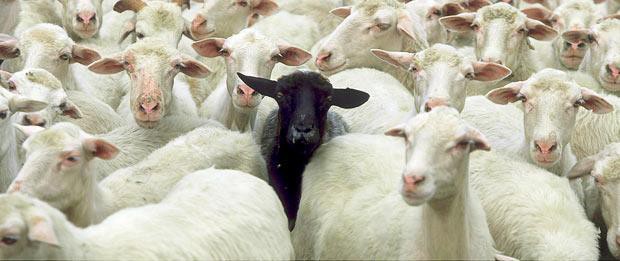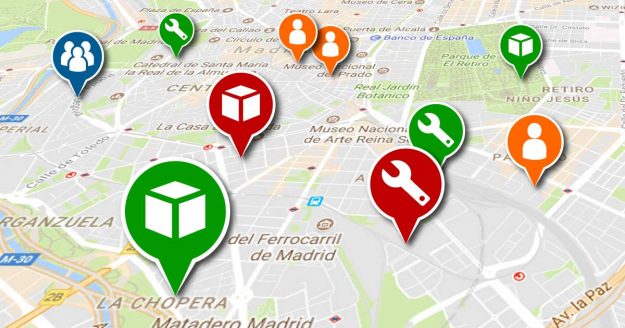Who would be in charge?
No-one – and everyone!
The thing is to stop being dependent on outside agencies by becoming responsible and self-regulating. Once we assume ultimate responsibility for ourselves and others, we will always act in ways that serve each other in a positive way.Regulation is merely a blunt tool to stop people doing stupid or crazy things, but in a properly educated society, this is no longer necessary. We can cultivate appropriate behaviour through education, not brute force.
What about politicians?
Greed is a natural response to scarcity, so we should never be surprised that people act greedily in a scarcity-driven social system.
I guess today, the people that become politicians are those that are genuinely interested in trying to make society better. The problem for today’s politicians is that society is just too tangled up in the profit motive, and bringing effective change becomes next to impossible. Then, once those politicians find ways to take advantage of that system for their own ends, they can easily become corrupted. It’s important to remember that greed is a natural response to scarcity, so we should never be surprised that people act greedily in a scarcity-driven social system.
In a free world, those who would desire to be politicians today would actually be able to apply themselves more effectively to social issues and inspire others in solving local problems.
What’s your take on UBI? UBS?
Universal basic income, or UBI – giving everyone a living wage unconditionally – is capitalism’s answer to the impending employment crisis. The game is up for the money-for-labour idea and many top business leaders have already recognised that fact. Their only view is through the monetary lens of course, so UBI is the obvious choice for them. But of course it doesn’t really solve any of our basic problems like inequality, pollution, waste of resources, debt, inflation etc. In fact, to my mind these will only get worse as people have more disposable cash. It will also further widen the inequality gap between money-giver and money-getters, and even further indenture people to the whole idea that money is the only possible way that society can operate. Which it isn’t.
Some have suggested a system of universal basic services (UBS) which sounds a lot more promising. Rather than handing people money, give them the things that they need like housing, food, electricity, internet, etc. This I see as a very positive step in the direction of a free world. We can get there service by service. Bring it on.
What’s your take on The Venus Project, Zeitgeist Movement, similar movements?
There are quite a few movements out there proposing similar money-free ideas. My personal favourite is Ubuntu – as they are also proposing things we can do today. I’m particularly impressed with their ‘One Small Town‘ initiative where they want to create a money-free community within one prototype town with the hope that others will follow if successful.
Others like The Venus Project are also impressive but, for me, they are too ambitious in that they hope to build an entire prototype cybernated city, which, even if they succeed, does not necessarily prove it can work everywhere or appeal to everyone.
What’s your take on the recent increase in money-free political parties?
There’s no doubt change is happening everywhere you look. Deep down, people know the game is up and are experimenting with different ideas. Money-free political parties are a great way to broach the subject and get people thinking. The Money-Free Party in New Zealand has made great strides in recent elections, promoting the money-free conversation. It’s only a matter of time before some of these representatives win seats, though hard to imagine what they could achieve within a traditional government apart from acting as a watchdog of some sort.
Another interesting thing to watch is Bitcoin. Many people think that is the future and, to a degree it is, as it proposes decentralisation and bypasses traditional power centres. All these agents of change are good and we’re heading in generally the same direction – towards a system that works better for all inhabitants of this world and not just a few.
What’s the biggest objection you’ve come across when you broach the topic of a free world with people, and what is your response?
R. Buckminster Fuller famously said that to change something, just build something that makes the old system obsolete.
I think most people, when they give a money-free world due consideration, can see the logic of it, but their biggest question is ‘how do we get there?’ And my answer is always the same: we’re already on the way. Change is happening everywhere and many are beginning to question our existing way of operating on this planet. The American inventor and futurist R. Buckminster Fuller famously said that to change something, just build something that makes the old system obsolete. And many, like me, are already working on that alternative.
Freeworlder.com is what I like to consider our little model money-free world, where members get to freely give and get goods and services. Though small in membership today, this idea – and other sites like it – are really beginning to catch on. Maybe today, you can get a free haircut from a neighbour through the site, but who knows in a few short years to come, we will see the likes of cars and houses being offered there. That’s when we’ll know we are getting close to rendering the old trade system obsolete and moving towards a future that works for everyone.
What would you say to those who claim a free world is a good idea, but that others would disagree?
Let’s face it, most people in the world today will disagree immediately. Money has become synonymous with survival, so a world without money is just too counter-intuitive a concept for most busy people to grapple with. But, as I said earlier, with due consideration, the logic eventually becomes apparent. It’s the kind of idea that quietly gnaws away at your belief centres when you’re sleeping. The logic is ultimately overwhelming – especially in the face of our destructive, disconnected society.
But don’t expect people to get it straight away. If you explain the idea and someone disagrees, just give them time. It’s quite a mental odyssey to make, but everyone will eventually make it. The best way I find is to mainly discuss the ideas with people who you think would be receptive. We can grow faster that way. It’s like spreading from the edges then, instead of dropping idea bombs!
What would you say to those who claim we’re not slaves, that we’re already free to do as we choose?
Our culture confines us to a particular way of thinking, and it’s not always easy to step outside.
Well, there is certainly an element of Stockholm Syndrome going on – where people implicitly place their faith in the incumbent system, believing their choices to be free, when they are in fact confined within certain parameters. Our culture confines us to a particular way of thinking, and it’s not always easy to step outside. We cherish core beliefs like: “my country is the best”, or “my religion is the one true one”, or “you can’t get something for nothing”, or “without government there would be chaos”, etc. These ideas are merely passed down from parent to child, and sadly, reinforced in contemporary culture by a corporate-owned media. When we see those core beliefs reinforced by outside agencies, it makes them even stronger.
But as people begin to question more and experience injustice first-hand, their true predicament will become clear to them. It’s a little like Logan’s Run, the 70s movie, where the people living in Dome City come and see the outside world for the first time!
If you don’t believe you are a slave to the system, just ask yourself, how much time do you spend working to service your financial freedom? What percentage of your life thus far has been dedicated to an abstraction that actually has no basis in nature? Is there something else you would rather have been doing with all that time?
Don’t get me wrong, an open economy is not an absolute free-for-all, as there would always be some level of community commitment, responsibility and stuff to be done – just much, much less than what we believe today gives us the quality of life we crave.
Final words?
To anyone who has any doubts about how a world is possible without money, borders and government, I would say just this: you’re right to be sceptical. Don’t believe everything I say, but don’t believe everything you see around you either. Question everything that you see in our society today.
Ask yourself if this is really the best we can do. Ask yourself if everyone living their finite lifespan really deserves to spend the majority of it toiling and stressing to meet these imaginary self-imposed conditions, or do we deserve to live happier, freer lives at the limits of our true potential?
Make your own judgement.
Ready to be part of this great change? Join Freeworlder today and help us create a truly free and better world for all.









Well said.
That is excellent!
Great interview! I believe you are referring to Blockchain (instead of Bitcoin) to play an important role in the near future). Furthermore there are several mutual platforms at the moment focussing on creating a entirely new model that is regenerative, instead of finding solutions in the current model which is fighting symptoms.. and as Bucky stated, we are creating a new model that is based on self-governance that place human values and the biosphere in the center ;-).